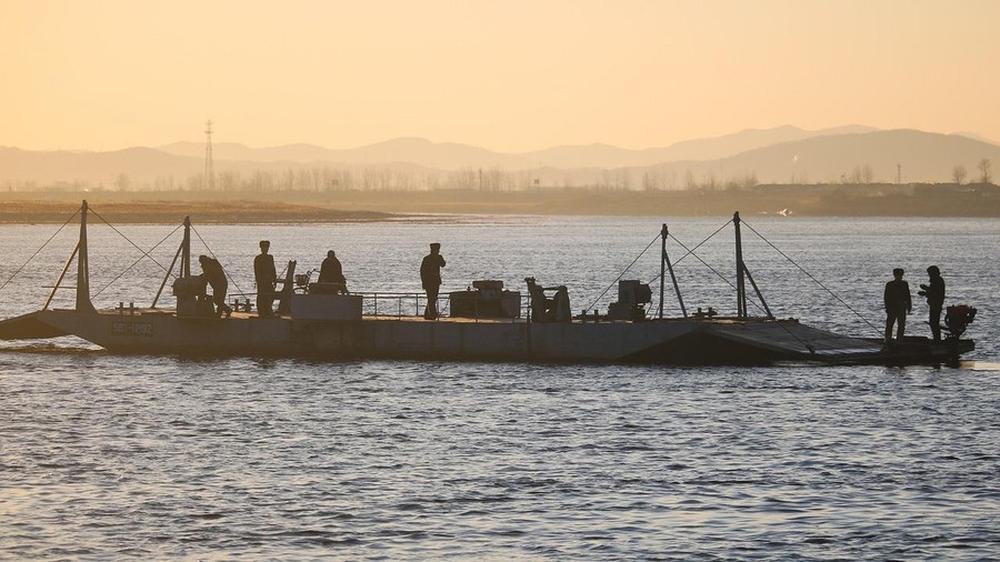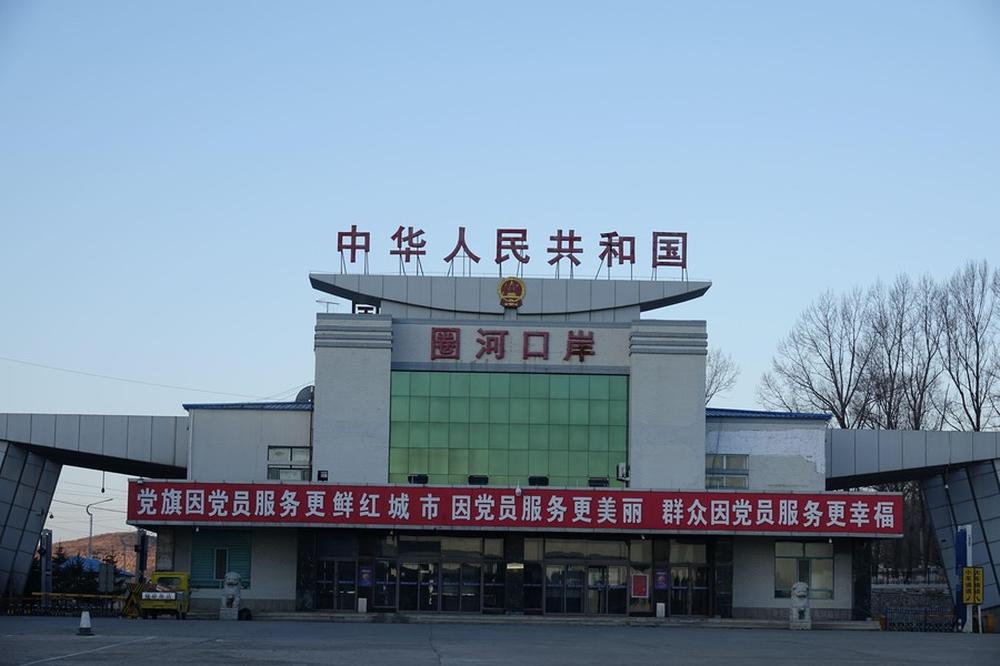
- #Economy & Trade
- #Global Issues
- #North Korea
- #Sanctions & Human Rights

▶ The foreign exchange reserves (FER) of North Korea at the end of 2023 are estimated to be well below $8.0-8.5 billion.
▶ Given the rapid increase in imports since the end of the COVID-19 pandemic, along with the volume of private FER, the FER held by North Korean authorities appears to be insufficient and is likely to be quickly depleted.
▶ A critical factor in determining North Korea's future FER will likely be the ongoing Russian-Ukrainian war.
This article provides an overview of my estimates for North Korea(NK)'s balance of payment (BOP) during the seven years (2017–2023) following the intensification of sanctions. By combining these estimates with the foreign exchange reserves (FER) at the end of 2016 ($10.6 billion, also based on my estimation), it calculates NK's FER at the end of 2023 and discusses the implications of these findings.
The estimates are divided into two categories: legitimate and illicit transactions. Legitimate transactions include official trade in non-sanctioned goods and services, grants, concessional loans (such as crude oil supplies from China), and foreign direct investment. Illicit transactions involve activities such as hacking, overseas labor, exports of coal, illegal imports of refined oil, trade in military goods (particularly exports to Russia), sale of fishing rights, exports of gold, remittances to NK, illegal activities by diplomats, and trafficking in narcotics and counterfeit goods, as well as overseas construction and restaurant operations.
This article focuses solely on the results of the estimates; detailed methods and supporting evidence are available in my published reports: Lim Soo-Ho, "Estimation of North Korea's Balance of Payment After Sanctions I: Legitimate Transactions Balance (2017–2023)," INSS Strategic Report No. 262 (2024); "Estimation of North Korea's Balance of Payment After Sanctions II: Illicit Transactions Balance and Overall Balance (2017–2023)," INSS Strategic Report No. 283 (2024).
1. Legitimate Transactions Balance
From 2000 to 2016, prior to the intensification of sanctions, NK's cumulative net BOP from legitimate transactions showed a surplus of $5.59 billion, averaging $330 million per year. This surplus was primarily the result of offsetting large deficits in the external goods balance with surpluses in the inter-Korean goods and services balance, as well as in the external income and services balance.
However, from 2017 to 2023, it shifted into a deficit of $8.25 billion (goods balance -$8.57 billion; services balance $310 million), averaging an annual deficit of $1.18 billion. This was primarily due to sanctions, which caused exports to decline more sharply than imports, leading to a significant increase in the goods balance deficit. Additionally, inter-Korean balances, external income and most service balances, which had previously helped offset deficits, became illegalized under the sanctions regime.
By period, the deficit sharply spiked right after the sanctions were imposed, declined during the border closure, and then rose again after the border reopening. This pattern reflects a surge in imports following the reopening, while exports remained largely stagnant due to the sanctions. From the perspective of legitimate transactions, the sanctions on NK have thus proven highly effective.
Comparative Analysis of NK's Legitimate net BOP
Unit: USD 100 million, %
|
|
2000~2016 |
2017~2023 |
Remarks |
|||
|
Cum. |
Avg.(A) |
Cum. |
Avg.(B) |
B/A (%) |
||
|
Secondary Income balance |
42.2 |
2.5 |
6.37 |
0.91 |
36.4 |
|
|
-Grants |
25.1 |
1.5 |
6.37 |
0.91 |
60.7 |
sharp decline in aid |
|
-Remittances |
10.9 |
0.6 |
0 |
0 |
0 |
illegalized |
|
-Denuking Aid |
6.2 |
0.4 |
0 |
0 |
0 |
no activity |
|
Capital&Financial Account |
55.6 |
3.3 |
24.55 |
3.5 |
106.1 |
|
|
-Concessional Loans |
50.0 |
2.9 |
23.95 |
3.4 |
117.2 |
increase of oil prices |
|
-Direct Investment |
16.7 |
0.97 |
0.62 |
0.1 |
10.3 |
joint venture illegalized |
|
-Capital Expenditures |
-11.1 |
-0.65 |
-0.02 |
-0.003 |
0.5 |
overseas activities decline |
|
External Goods Balance |
-60.6 |
-3.6 |
-85.7 |
-12.2 |
338.9 |
most exports & capital goods imports ilegalized |
|
External Services Balance |
27.0 |
1.6 |
3.1 |
0.5 |
31.3 |
partially illegalized |
|
Inter-Korean Goods Balance |
27.9 |
1.6 |
0 |
0 |
0 |
illegalized, no activity |
|
Inter-Korean Services Balance |
18.8 |
1.1 |
0 |
0 |
0 |
illegalized, no activity |
|
Primary Income Balance |
32.0 |
1.9 |
0 |
0 |
0 |
illegalized |
|
Total |
55.9 |
3.3 |
-82.5 |
-11.8 |
-357.6 |
|
2. Illicit Transactions Balance
(1) Hacking
Between 2017 and 2023, NK's income from hacking is estimated at approximately $1.35 billion, with cryptocurrency hacking accounting for $1.34 billion and fiat currency theft contributing only $6.1 million.
Income from cryptocurrency hacking surged in 2021–2022 but declined in 2023. The increase in 2021–2022 is attributed to the rapid growth of total value locked (TVL) in decentralized finance (DeFi), while the decline in 2023 reflects a drop in TVL and strengthened security measures in DeFi.
(2) Overseas Labor
NK’s overseas labor income between 2017–2023 is estimated at $1.75 billion. Most ($1.36 billion) of this came from wages in non-IT sectors like garment, logging, and construction, while IT sector income remains relatively low at $400 million. However, unestimated additional income may be significant, including wages from multiple jobs held by overseas IT workers and foreign currency earnings by IT workers within NK.
By country, China is the primary source of income from overseas workers, with income increasing annually. This trend reflects China's tacit approval and the use of various loopholes (e.g., short-term visas) to maintain the number of NK workers despite sanctions. Rising wages in China also contributed. Additionally, with recent trends in NK-Russia military-economic cooperation, labor dispatch to Russia and related income could significantly increase in the future.
(3) Coal export and illegal refined oil import
Between 2017 and 2023, NK’s coal exports revenue is estimated at $2.15 billion, while illegal refined oil imports expenses amount to $1.19 billion. Coal exports and refined oil imports peaked in 2019, dropped sharply during the COVID-19 pandemic, and have rebounded since 2023. This rebound reflects both the increased prices and trade volumes.
(4) Others
NK is estimated to have earned minimum $540 million in 2023 from arms exports to Russia, though it remains unclear whether these exports should be included in BOP. If payments are received entirely in cash, they increase foreign currency income; if entirely in goods or technology, they reduce foreign currency outflows only when accounted for as official imports or smuggling.
From 2017 to 2023, other sources of income include fishing rights sales ($610 million), gold exports ($690 million), remittances ($150 million), trafficking in narcotics and counterfeit goods ($100 million), and illegal income by diplomats ($20 million), totaling $1.58 billion.
3. Overall Balance and Foreign Currency Reserves
(1) Overall Balance
Between 2017–2023, NK’s overall cumulative BOP is estimated to range from -$2.07 billion to -$2.61 billion. The legitimate transactions balance recorded a deficit of -$8.25 billion, while the illicit balance ranged between $5.64 billion and $6.18 billion, depending on the inclusion of arms exports to Russia.
NK's Overall Balance of Payment
Unit: USD 100 million
|
|
2017 |
2018 |
2019 |
2020 |
2021 |
2022 |
2023 |
Total |
|
Legitimate Transactions |
-13.0 |
-16.5 |
-22.3 |
-3.5 |
-1.5 |
-7.8 |
-17.9 |
-82.5 |
|
Hacking |
0.1 |
1.7 |
0.9 |
1.0 |
1.4 |
5.3 |
3.2 |
13.5 |
|
Overseas Labor |
3.2 |
2.5 |
2.0 |
2.2 |
2.4 |
2.5 |
2.7 |
17.5 |
|
Coal export |
2.6 |
- |
7.0 |
3.7 |
0.7 |
1.9 |
5.5 |
21.5 |
|
Illegal refined Oil import |
- |
2.5 |
3.4 |
2.6 |
0.5 |
1.1 |
1.7 |
11.8 |
|
Arms Trade (with Russia) |
- |
- |
- |
- |
- |
- |
5.4 |
5.4 |
|
Fishing Fees |
0.6 |
1.0 |
2.5 |
1.1 |
0.1 |
0.3 |
0.5 |
6.1 |
|
Gold export |
1.2 |
1.2 |
1.2 |
0.9 |
0.9 |
0.9 |
0.9 |
7.0 |
|
Remittances |
0.4 |
0.4 |
0.4 |
0.1 |
0.1 |
0.1 |
0.1 |
1.5 |
|
Illegal Diplomatic income |
0.1 |
0.1 |
0.1 |
0.0 |
0.0 |
0.0 |
0.0 |
0.2 |
|
Drugs & Counterfeits goods |
0.3 |
0.3 |
0.3 |
0.1 |
0.1 |
0.1 |
0.1 |
1.0 |
|
Illegal Transactions (incl. Arms Trade) |
8.5 |
4.6 |
10.9 |
6.4 |
5.1 |
9.9 |
16.6 |
61.8 |
|
Illegal Transactions (excl. Arms Trade) |
8.5 |
4.6 |
10.9 |
6.4 |
5.1 |
9.9 |
11.2 |
56.4 |
|
Net Balance (incl. Arms Trade) |
-4.6 |
-11.9 |
-11.5 |
2.9 |
3.5 |
2.1 |
-1.3 |
-20.7 |
|
Net Balance (excl. Arms Trade) |
-4.6 |
-11.9 |
-11.5 |
2.9 |
3.5 |
2.1 |
-6.9 |
-26.1 |
(2) FER
As of the end of 2023, North Korea’s FER are estimated to be $8.0–8.5 billion (2016 reserves of $10.6 billion plus the cumulative balance of -$2.07 billion to -$2.61 billion between 2017-2023).
However, this estimate does not account for illegal imports of capital goods and WMD-related items. Therefore, real FER will be well below of $8.0–8.5 billion. Additionally, a significant portion of reserves is held by private individuals, outside state control. While the government has been absorbing private FER, a substantial amount likely remains within the private sector. Lastly, If imports continue to rise rapidly, NK’s FER could deplete quickly.
However, there is one variable. If the Russian-Ukrainian War is prolonged, foreign currency incomes due to exports of military supplies to Russia and payment for the dispatch of troops will increase.

Soo-Ho LIM is the Senior Research Fellow of Institute for National Security Strategy(INSS). Dr. Lim’s research focuses on North Korean economy, inter-Korean economic cooperation, and nuclear non-proliferation issues including sanction. He received his Ph.D. in political science from Seoul National University in 2007.
